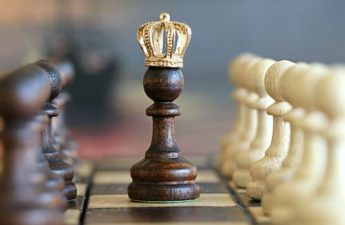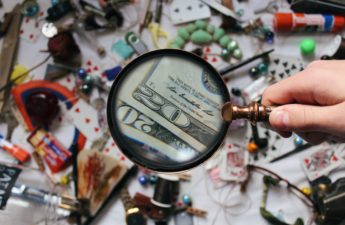In a previous post, I talked generally about the usefulness of gaming theory for business decision-making.
The situation where a gaming sponsor – the casino – controls all aspects affecting the outcome. To the determinant of the ‘player.’
There are many mental traps decision-makers fall into that create bad decisions.
A lack of understanding of probability and statistics is a big one.
Let’s examine “streaks” and “hot hands”.
Statistics students are taught about the normal distribution. Investopedia defines a normal distribution as “a probability distribution that is symmetric about the mean, showing that data near the mean are more frequent in occurrence than data far from the mean. In graph form, a normal distribution will appear as a bell curve”.
Classic statistics goes on to state that a sample size large enough will eventually go on to look like a normal distribution. Casino gambling games like roulette, blackjack, craps, and so on follow this law of big numbers. That’s the way the casinos make money off those games.
Within the normal distribution of large data sets are streaks either hot or cold, entirely caused by random chance. Numbers repeating themselves in a counterintuitive way. For instance, rolling the number six on a dice ten times in a row. This is “Luck” or randomness. The fallacy of small numbers.
Think of the gambler who believes when a streak arrives, the last roll of the dice somehow influences the next one. That a change is due because of the result of the last rolls of the dice. I am 100% sure that the dice doesn’t remember what happened on the last roll. Or the last ten. This erroneous type of thinking is called the “Gambler’s Fallacy.”
A related idea is having a “hot hand” in an environment where skill seems to be the dominant factor.
Take basketball, a game of skill. It is commonly believed that basketball is a game of streaks and hot hands. A player who would make a few hard shots would then go on to make more hard shots. This would go into a streak.
Psychologists Amos Tversky, Thomas Gilovich, and Robert Vallone studied the question of whether the “hot hand” exists or not. They believed the “hot hand” was a fallacy of reasoning. Using the world of basketball, they examined whether a player has a hot hand. Using data from the Boston Celtics and Philadelphia 76ers they found the “hot hand” idea was just an illusion.
Is it an illusion in other contexts? The human mind is always looking for patterns and often sees one when it isn’t there. The world of basketball is not so far removed from other human experiences that different principles of psychology apply.
The idea of the hot hand is related to the faulty idea of Gambler’s Fallacy. The idea is that probability has a memory. If you are on a bad streak, you are due for a win. The luck will change for the better. Of course, if you are winning, then you have a “hot hand” and the good luck will continue.
On a hot streak, a person has the feeling that – This is fun! I’m good at this! Of course, the logical part of the brain may be signaling overconfidence. Sometimes a lucky streak occurs when someone is new at a skill. Somewhere the brain tells itself “I have a knack for this.” That it isn’t luck but natural ability.
On a cold streak, this type of faulty thinking may sound like this. I have had bad luck lately. I deserve a break! I deserve for the streak to change. It’s due for a change. It will change because of the law of averages.
Here’s a personal example. I don’t gamble but have been to Vegas a few times usually, but not always, for business trips (conventions). On one of those trips with a group of friends, I was at a dice table where the shooter – person throwing the dice – won 9-10 times in a row. Rolling what’s called a “pass.” I gambled with the shooter and won some money. When I told my friends about the shooter rolling 9 to 10 passes in a row, they chastised me for not winning more money. I should have bet more. The shooter was on a hot streak and I didn’t take advantage. Except I knew the dice had no memory, but my friends thought it did. They were falling for the Gambler’s Fallacy.
I’ve also seen gamblers chase losses during a cold streak. Thinking the streak of the dice had to change. That it was due to change. So they increase their bets. Not understanding that each roll of the dice is independent with no memory. That’s just plain faulty thinking. I can think of at least three very sad stories with this scenario.
People often think if a coin is tossed ten times, about five of those tosses should result in tails. Of course, that’s not really how probability really works. The sample size isn’t large enough for a normal distribution.
Only if a coin ross results in a thousand tails in a row (or more) should a person consider if the game is fair or not. Even then, that sample size may be large enough.
Streaks make the human mind uncomfortable. In our heads, probabilities should be normally distributed. Meaning they play out as described in our probability courses in the way we imagine.
The discomfort comes from the law of small numbers. We think small samples should be just like large samples. Except they usually aren’t. We just assume they are.
People may think they are immune to this type of fallacious thinking. But they are very susceptible to it. The hard part is fighting the natural inclination towards fighting these biases in practice rather than just recognizing them in theory.
If you want to make good decisions in statistically independent situations, you must acknowledge that you are not “due” for good things. Not good karma, good health, money, or anything. You aren’t “due” for bad things either. Probability has amnesia.
Each future outcome is independent of its past. It is up to the individual to analyze and determine to what extent the past can influence the future in specific non-gaming situations.



